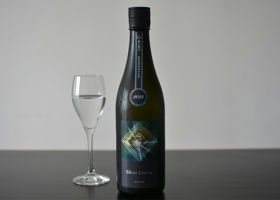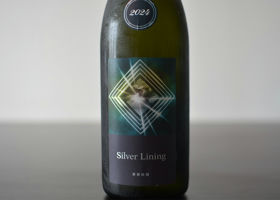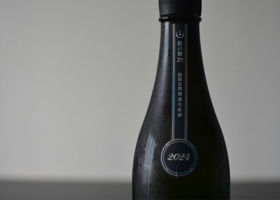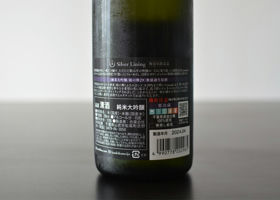



Hori
This Junmai Daiginjo is made from So-no-Mai rice grown in Chiba Prefecture.
This is the first time I have heard of So-no-Mai, so I looked it up and found out that it is a variety born in Chiba Prefecture, created by crossbreeding sake rice called Hakumyo-Nishiki and rice called Chubu-72. HIROMYOSHI-NISHIKI has an ancestor in OMACHI, and CHUBU 72 has an ancestor in KOSHIHIKARI, so it is like a thoroughbred in the sake rice world.
Silver Lining is made by milling this So-no-Mai to 29%.
From the high milling ratio and the flashing design of the label, I imagined a sharp and clear flavor, but when I tried it, I was very disappointed. Rather, it had a rich sweet taste, the highest level ever among Kangiku wines. The slightly thickened texture also helped give a syrupy impression of sweetness, but it did not taste heavy or cloying, perhaps because it is made from 29% polished rice. The acidity is moderate, so the word "juicy" does not apply, but there is a freshness from the fine bubbles of slightly carbonated air, and while the sweetness and umami are well perceived and full, the back palate finishes with a slight bitterness.
The Leap Day we drank two months ago was also 29% polished rice, but the taste was different. I wonder if the difference is largely due to the difference in sake rice.
Japanese>English